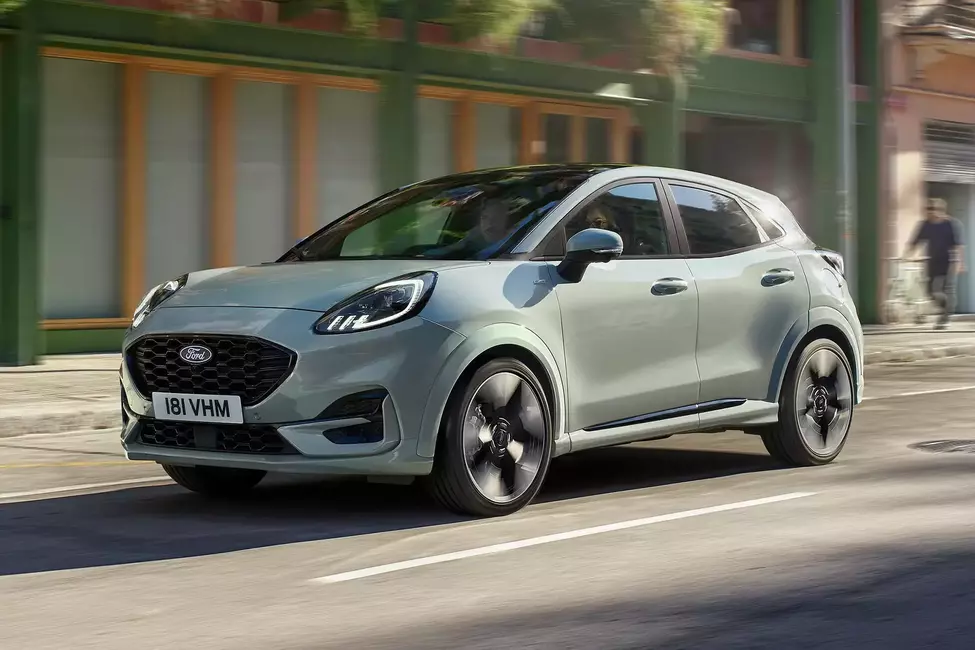Self-employed car finance

Can I get car finance if I’m self-employed?
Being self-employed doesn’t mean you can’t buy a car through a finance deal. Here’s what you need to know.
At the end of 2023 there were some 4.37 million self-employed workers in the UK, a number that’s grown by nearly a quarter since the turn of the century. While there are many benefits to being your own boss, it can also make some things more difficult, one of which is obtaining a car finance deal.
But being self-employed isn’t an absolute barrier to getting credit for your next car. It might be more difficult not having a wage slip or fixed earnings each month, but since the increase in demand by self-employed people for car finance, lenders have adapted to serving this demographic.
Here are a few things you can do to increase your chances of being accepted for a good deal.
Sort your credit rating out
First things first – check your credit report and make sure all the information on there is accurate. There are three main credit reference agencies – Experian, Equifax and TransUnion.
Lenders will refer to these to see how much of a risk you pose as a customer, and they contain information such as your name, address, whether you’re on the electoral roll and whether you have any county court judgments (CCJs) against you. Your file will also contain information on existing loans, overdrafts and even how many loan applications you’ve made recently.
These files are not foolproof – check for any errors, misunderstandings or anything that could lower your standing in the eyes of a finance company. Notify the reference agency if anything’s amiss.
If you’re not already on the electoral roll, get on it as it helps to confirm your identity and address, and therefore lowers your risk. If you’ve been at a single address for some time, that will be a positive factor compared to someone who moves around regularly.
Prove your financial stabilit
You should also provide your latest business trading accounts to prove that your business is solvent and that you can repay a loan. It used to be that you’d need three years worth of accounts to be approved for car finance, but this has been relaxed in recent years. Two years or even just one may well be enough.
Tax returns should also be acceptable evidence of your creditworthiness. If the lender wants evidence of your trading performance, they’ll look at your business’s net profit after tax, which should be at least double the amount you’re looking to borrow. Other lenders may cap the amount you can borrow at 25% of your net monthly income.
What if you don’t have accounts to show?
If your business hasn’t been trading long enough to have a demonstrable set of accounts, bank statements could be used to prove your income and outgoings, and demonstrate your financial history. They should be able to build trust with the lender, assuming that you haven’t consistently spent more than you earn.
Be truthful with the lender if they have questions and show that you have both a clear understanding of your finances and that you can pay back anything you owe. Don’t overstate your income, and make sure you have a detailed knowledge of all your outgoings.
Whatever you do, don’t apply for a loan that you can’t repay. It shows financial naivety and will likely be declined. This will negatively impact your credit history, and make it even harder to obtain credit in the future.
What is the car for?
If you’re applying for finance for a car that will mainly be used for business purposes, you may find it difficult. Many lenders won’t approve a loan for business use, because the car will likely experience more wear and tear than a personal car. This means that if you miss payments and the lender is forced to take the car back, it could be worth considerably less than the amount still owed.
This means that for businesses like a taxi service or a driving school, hire purchase (HP) could be a better solution – unlike leasing or Personal Contract Purchase (PCP), this type of finance product is designed so that you own the car at the end of the contract, rather than it being leased.
Gather a large deposit
The bigger deposit you can afford, the better. This has two benefits – it lowers the risk to the lender thereby making you a more attractive customer, and also means you have a smaller amount to pay off, resulting in lower monthly payments and less interest.
Consider a guarantor or a joint application
If you’re still having trouble getting approved for car finance, you could consider guarantor finance. This is usually aimed more at young drivers, but it could be a viable route if your credit rating is less than stellar.
You’ll need someone that can back you up financially if you have trouble paying. The guarantor will assume responsibility for making repayments if you can’t. They’ll need to have a good credit rating and prove that they can meet those commitments.
A similar route would be to take out a joint application with someone that has a good credit score and can share the repayments.
First time’s the charm
Every time you apply for finance, a credit check is made on your record. If this happens multiple times, it will look to future lenders like you’re making multiple loan applications, and that can be interpreted as high risk, making it less likely that your application will be accepted.
That means that you should do everything you can to make sure your finances are in as good a shape as possible before you apply.
Browse our most popular models

24/09/2024
Best Car Deals for New and Used Cars
Whether you're looking for the best PCP deal, huge savings with a great car leasing deal or car finance discounts, we’ve searched to find the best car deals for you.
Best 0% APR Car Finance Deals
If you're looking for a 0% car finance deal on a new car, you've come to the right place. We've searched to find the best 0 interest finance car deals out there to help you save money.
Best PCP Car Deals
Personal Contract Purchase (also known as PCP) could allow you to get your hands on a new car without needing to stump up a significant sum of cash all at once. And to help you out, we've rounded up all the best PCP car deals on offer in the UK today.
Promotions
Trustpilot Reviews
Get our latest advice, news and offers
Keep me updated by email with the latest advice, news and offers from heycar.
By submitting you agree to our privacy policy














